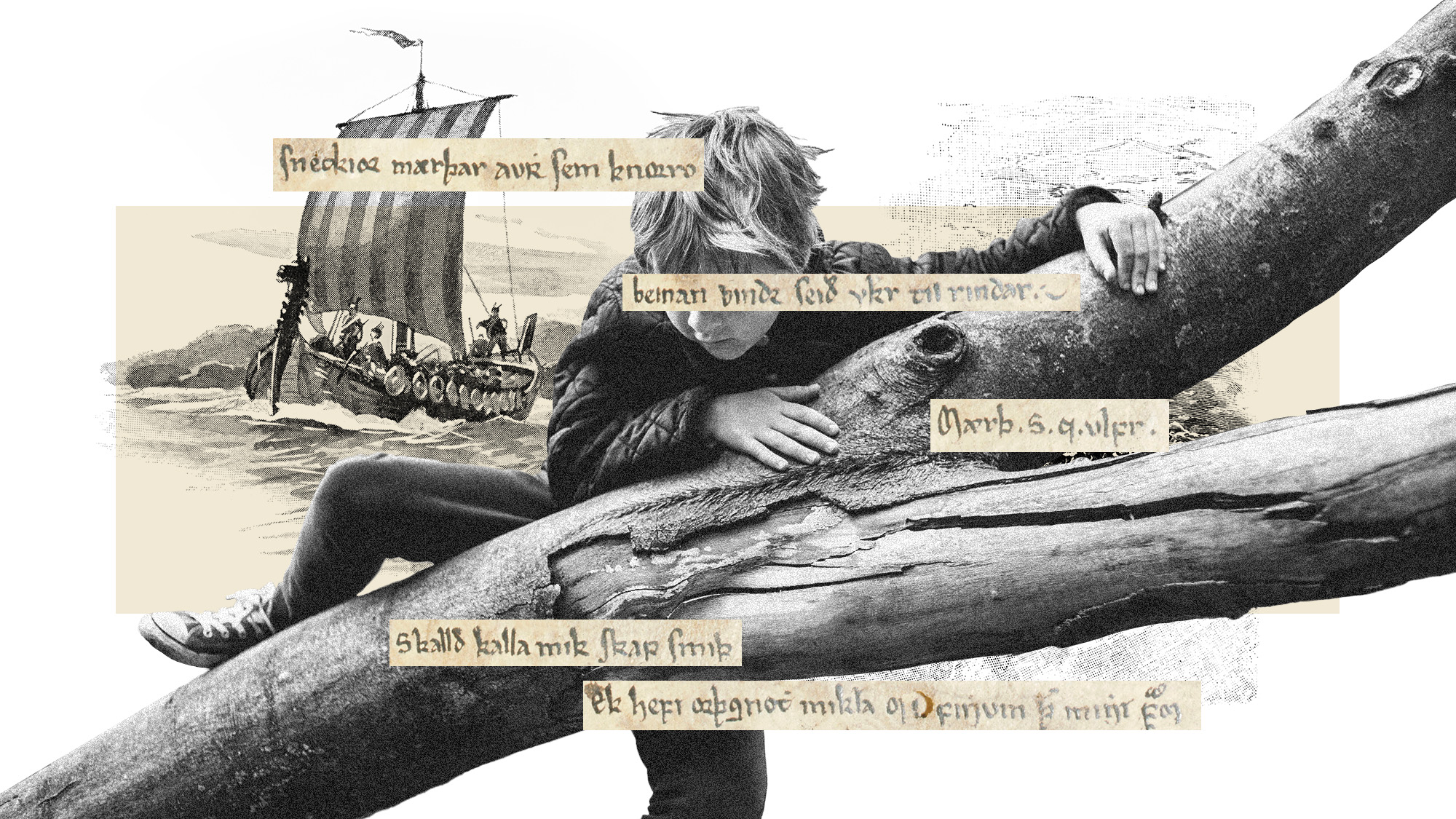Viking parenting: the Scandi secret to raising happy children?
'Risky' Danish approach encourages independence in children, but it might not suit all families

A free daily email with the biggest news stories of the day – and the best features from TheWeek.com
You are now subscribed
Your newsletter sign-up was successful
In her book "How to Raise a Viking", Helen Russell explains from experience how Nordic countries put a strong emphasis on resilience, outdoor play, independence, egalitarianism and a balanced approach to education and family life.
"Viking parenting" is about raising children to be self-assured, capable and connected to the natural world, and studies suggest the happiest children are in Scandinavia.
Russell moved from London to Denmark "carefree and childless". Now "a decade and three children later" she's still there. But how well does Viking parenting work and can other societies replicate it?
The Week
Escape your echo chamber. Get the facts behind the news, plus analysis from multiple perspectives.

Sign up for The Week's Free Newsletters
From our morning news briefing to a weekly Good News Newsletter, get the best of The Week delivered directly to your inbox.
From our morning news briefing to a weekly Good News Newsletter, get the best of The Week delivered directly to your inbox.
'Fall and get up again'
By encouraging risk-taking and independence, Viking parenting aims to help develop problem-solving skills and resilience in children. The emphasis on outdoor activities promotes physical fitness and a connection to nature, but some details can be surprising.
Writing in The Guardian, Russell explained that babies in Nordic countries are often left to nap outside in their buggies even in freezing temperatures. From six months, they sit at the dining table in a Tripp Trapp high chair without any straps. A friend told her that "a child that objects to sitting does not become calmer by a harness".
Kids as young as six cycle to school and walk to their friends' houses on their own. In Iceland, under-12s have an official summer curfew of 10pm, while children as young as 13 are allowed out until midnight.
Nordic children "do things differently", she wrote in The Guardian. "They eat differently, learn differently, play, dress, even sleep differently" and they "sing, fight, climb, fall and get up again".
A free daily email with the biggest news stories of the day – and the best features from TheWeek.com
Scandinavians believe children "need to be social from the start", wrote mother-of-five Anna Tyzack for the i news site. Tyzack is a self-confessed "helicopter mum" from south London who tried out Viking parenting. And she was able to recognise that while encouraging children to get out into the world and take risks might "increase their chances of dying in the short term, in the long term it'll increase their chance of survival".
Viking parenting might seem strange to those outside Nordic countries, but helicopter parenting is odd to them. Icelanders call helicopter parenting "curling" – smoothing the way in front of your child with a broom as in the winter sport.
'Best poo ever'
Sitting down and eating as a family is "highly valued" in Nordic society, where "even a CEO is allowed to say in a meeting at 4pm, 'I have to leave now to pick up the kids.'"
Even clothing complements Viking parenting. Children are "taught how to think, not what to think", wrote Russell. There is "no such thing as wrong weather, only the wrong clothing", with children and adults alike having extensive winter wear to be able to brave the elements outside.
And "while many cultures adopt the idea that constant praise enhances the development of self-esteem", she added, "Danes don't". This avoids over-praise, which she says leads to parents saying: "Who's my CLEVER BOY! That's the BEST poo EVER!"
Tyzack attempted Viking parenting for a week, and admitted that it seemed "a bit mean" to start the "risky parenting" with her one-year-old, but she still sat her "strap-free" at the breakfast table and on a bench at the local park. Both times, she said, her child was "delighted".
When she allowed her three-year-old son to climb a tree, he slipped, grazed his knee and twisted his leg. But he quickly "wipes away his tears and says he wants to climb up again". After several other experiments and gimmicks, including a close shave with a strange man in a park, she wondered more and more "if it's time to start taking more calculated risks when it comes to my children".
But what works in northern Europe might not translate seamlessly to other cultural contexts due to differences in societal support systems, climate and community structure. For instance, wrote Russell in Reader's Digest, 79% of Danes trust most people, while she doesn't trust "79% of my immediate family".
Also, striking the right balance between freedom and guidance requires effort and might be daunting for parents who were not brought up by Viking parents themselves. Speaking to The Times, Russell described Viking parenting as "Enid Blyton without the bigotry". Whether parents in Britain "go mad" for it remains to be seen.
Chas Newkey-Burden has been part of The Week Digital team for more than a decade and a journalist for 25 years, starting out on the irreverent football weekly 90 Minutes, before moving to lifestyle magazines Loaded and Attitude. He was a columnist for The Big Issue and landed a world exclusive with David Beckham that became the weekly magazine’s bestselling issue. He now writes regularly for The Guardian, The Telegraph, The Independent, Metro, FourFourTwo and the i new site. He is also the author of a number of non-fiction books.